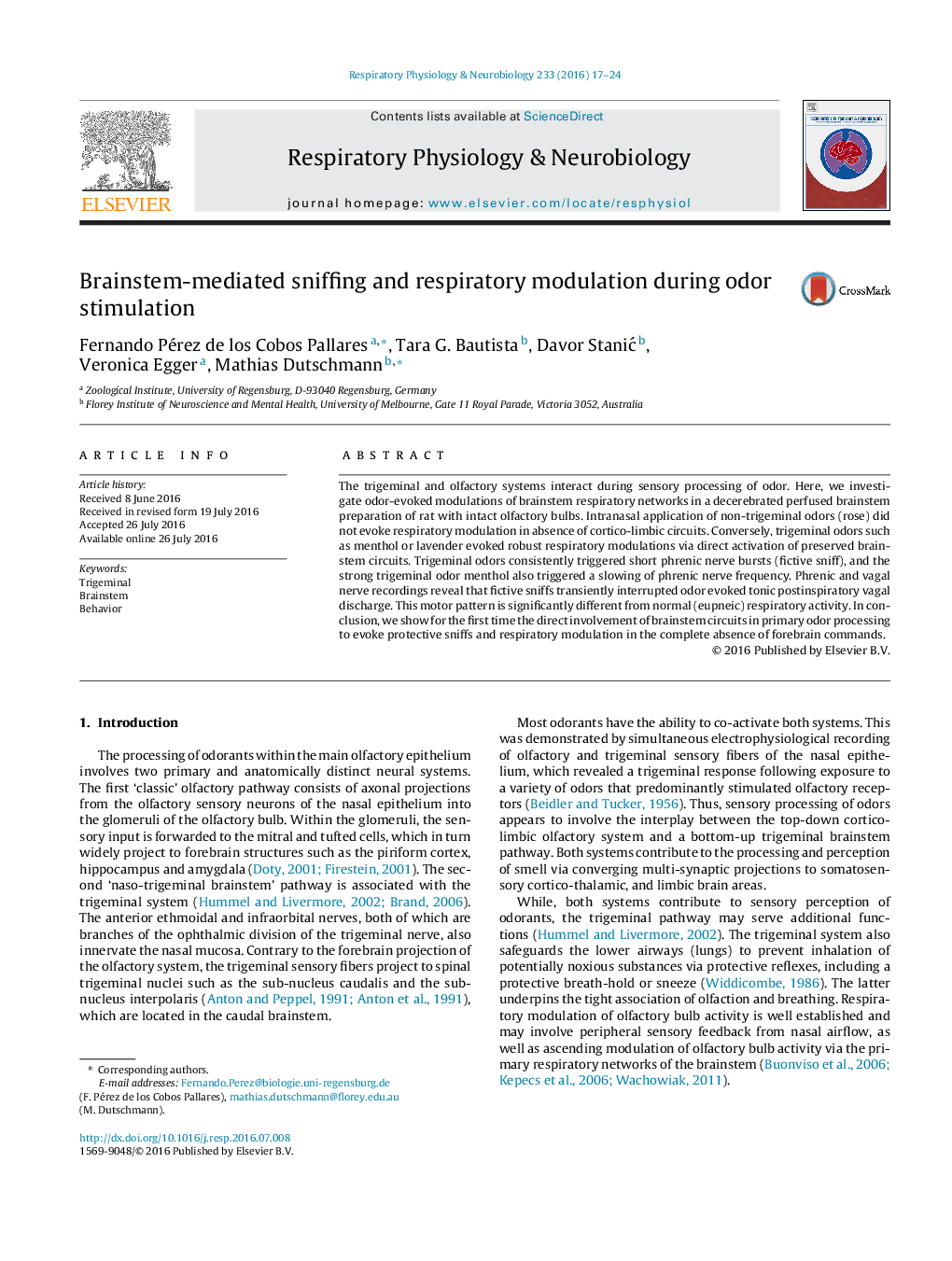| Article ID | Journal | Published Year | Pages | File Type |
|---|---|---|---|---|
| 2846620 | Respiratory Physiology & Neurobiology | 2016 | 8 Pages |
•Trigeminal odors stimulation in the perfused brainstem preparation triggers robust respiratory modulation.•The motor pattern of sniff is different to breathing.•Brainstem circuits appropriate a behavioral respiratory response in absence of cortico-limbic systems.
The trigeminal and olfactory systems interact during sensory processing of odor. Here, we investigate odor-evoked modulations of brainstem respiratory networks in a decerebrated perfused brainstem preparation of rat with intact olfactory bulbs. Intranasal application of non-trigeminal odors (rose) did not evoke respiratory modulation in absence of cortico-limbic circuits. Conversely, trigeminal odors such as menthol or lavender evoked robust respiratory modulations via direct activation of preserved brainstem circuits. Trigeminal odors consistently triggered short phrenic nerve bursts (fictive sniff), and the strong trigeminal odor menthol also triggered a slowing of phrenic nerve frequency. Phrenic and vagal nerve recordings reveal that fictive sniffs transiently interrupted odor evoked tonic postinspiratory vagal discharge. This motor pattern is significantly different from normal (eupneic) respiratory activity. In conclusion, we show for the first time the direct involvement of brainstem circuits in primary odor processing to evoke protective sniffs and respiratory modulation in the complete absence of forebrain commands.
